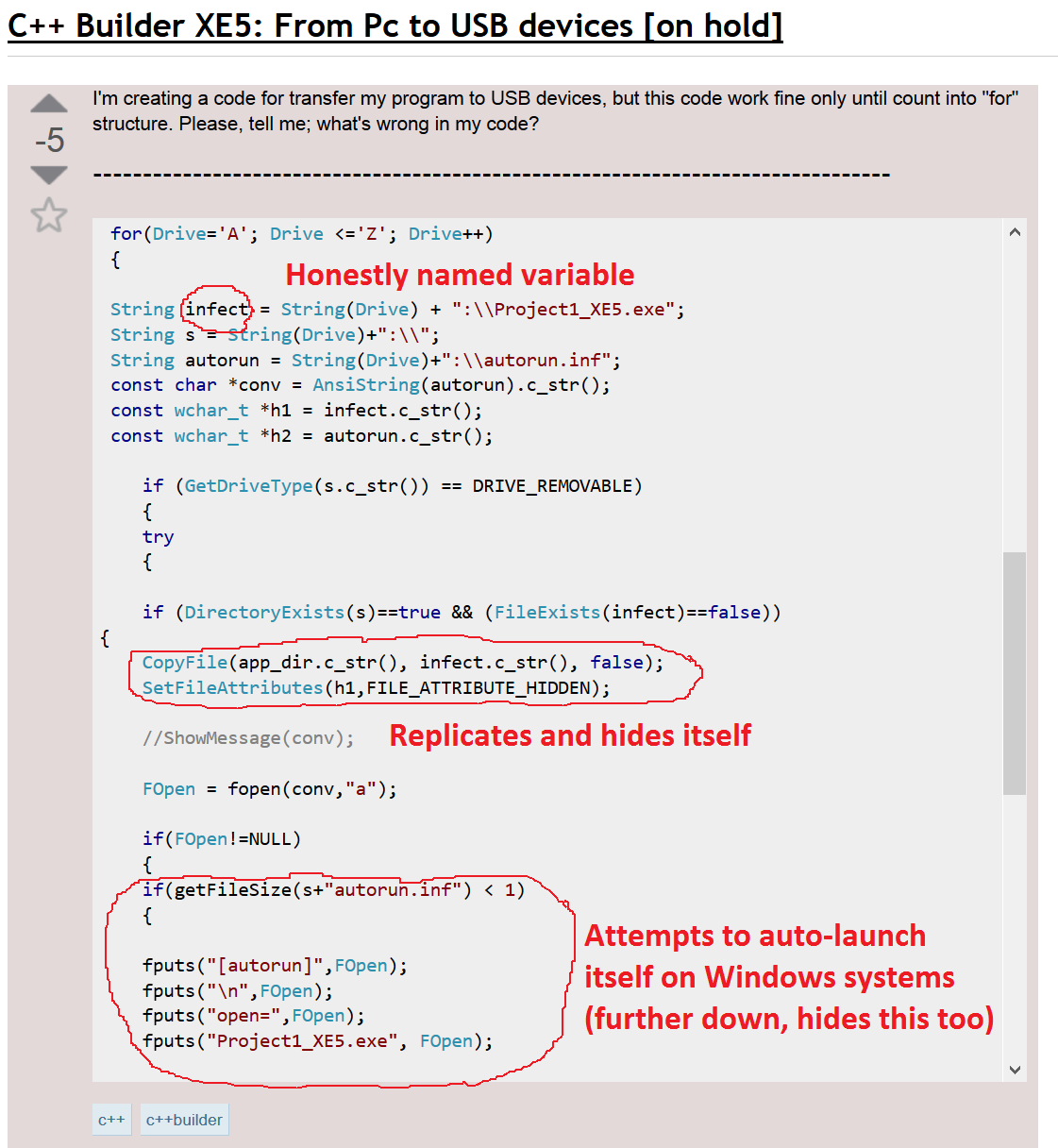We have clearly settled that we do allow questions about the creation of malware. Why are you bringing this up again? Why do you want to change the policy?
From the top-voted answer on Should virus or illegal-activity related questions/code be allowed? (copying the entirety of Ondra Žižka's answer because it's a good one):
Why not, virus coding is knowledge like anything else. It can be used for antiviruses, system core programming etc.
Studying viruses is not bad per se. Releasing them is. Studying security vulnerabilities makes good people fix them, bad people exploit them.
Censoring virus-related topics will not stop virus authors. Those are good enough to go on without stackoverflow.com. It will only decrease knowledge about the viruses, and potentially raising developers for companies like AVG, Avast, etc.
Of course, not those openly illicit. But let's not be naive - a real virus creator would not go here and ask "Hey I want to make a virus." Those who would are most likely not capable of creating it anyway.
From the top-voted answer on Dealing with questions of nefarious intent:
Basically, what I'm saying is that you have to treat each post on its own merits.
From the top-voted answer on Should "virus source" questions be deleted outright?:
Personally i have no issue with the OP asking specific questions about the code, as it is programming related after all. There is nothing wrong with studying virii, it is the use of the code that is criminal.
Speaking as a professional white-hat developer, I want to see black hat questions. They tell me what I'm supposed to defend again. When designing a defense, a lot of the difficulty is imagining how it could be breached. I want to know what my adversaries are up to so, so it would be highly counterproductive to prevent them from speaking in my presence.
This is in addition to the futility of recognizing nefarious content as such. One man's malicious spyware is another man's IT policy enforcement tool. The only clearly malicious content is script kiddies, and we have other reasons to close “how i rite virus???? plzsendtehcodez!!!!”.


transfer my program to USB devices. And also that the reason why the purpose of the code is so obvious is that the OP posts so (too) much of it.